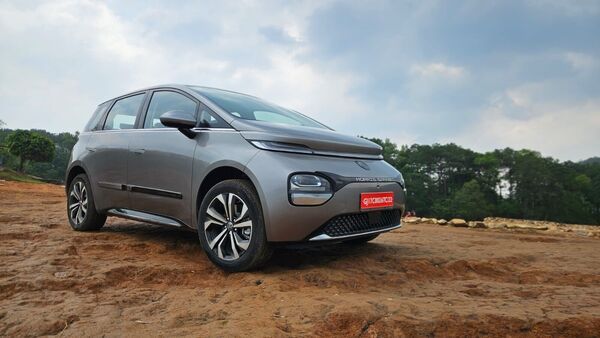Battery-as-a-Service or BaaS schemes have been ramping up the appeal of the electric vehicles in the Indian automobile market.

View Personalised Offers on
The auto manufacturers in India have been increasingly pushing electric vehicles, which is a strategy in sync with the growing positive consumer perception towards the cleaner powertrain technology, as well well fuelled by the government’s continuous push for cleaner mobility solutions. In the recent past, automakers such as JSW MG Motor, Hero MotoCorp‘s EV wing Vida have introduced this scheme for their respective offerings in the Indian market. In fact, it is one of the key reasons why the MG Windsor EV has become highly popular within a short period after launch and giving other models in the space tough competition. Vida, too, has announced a BaaS scheme for its VX2 electric scooter.
While the cost of ownership across the lifespan of the vehicle is lower for the EVs compared to their internal combustion engine-propelled counterparts, at least what is the usual perception among consumers, the upfront acquisition cost for the electric vehicles is significantly higher than their ICE counterparts. This often leads potential EV buyers to shy away from purchasing electric vehicles. To counter this, several electric vehicle manufacturers in India have started adopting a new strategy. They have started offering the consumers a scheme called Battery-as-a-Service (BaaS).
Also Read : Upcoming cars in India
The BaaS schemes have been changing the game in the Indian electric market over the last few years. Under this scheme, EV users have to pay an upfront cost for the vehicle, which is significantly lower than the scheme under which the whole vehicle is owned. The BaaS scheme allows the user to buy the vehicle and pay for the battery depending on his or her driving distance. In a nutshell, this scheme separates the price of the battery from the bodyshell, and the user pays the automaker the amount based on his or her driving distance.
For many, this scheme is a more transparent way to define the cost structure of owning an electric car. Also, for the industry, this scheme has started a significant transition in EV marketing strategy.
Battery-as-a-Service: What it is
BaaS is basically a battery leasing scheme under which consumers can buy the vehicle without paying the cost of the battery pack. For an electric vehicle, the battery is the key component and commands the largest chunk of the overall pricing. By slashing the cost of the battery pack, the sticker price of the vehicle comes down drastically, making the EV significantly affordable for consumers.
Under the BaaS, the customer either buys the bodyshell of the vehicle outright or through a loan, while the cost of the battery pack is broken down into monthly instalments through the schemes curated by affiliated financiers.
This battery rental scheme comes as a win-win situation for consumers, auto OEMs, as well as the financiers. The BaaS schemes usually allow the customers to choose customised plans based on their driving patterns and budget. Such plans allow the auto OEMs to reach a larger number of consumers with affordable scheme options, eventually resulting in wider sales numbers.
Battery-as-a-Service: Pricing dynamics
With the increasing popularity of the BaaS, companies have been offering a wider range of choices for the customers who opt for this scheme. Certain financiers charge clients a certain amount per kilometre, up to a specified limit, exceeding which the customers don’t have to pay any additional amount.
On the other hand, some plans insist on reserving a certain amount as a security deposit, and in return, there are no specified charges per kilometre, but a standard amount gets deducted every month.
In some other plans, if the user exceeds the specified kilometres, he or she is charged for the additional kilometres driven, and the additional money then gets adjusted in the corresponding months where the kilometres driven are less than the specified limit.
These flexible BaaS schemes offer a wide spectrum of cost structures to the consumers, ranging from flat fees to more compounding kilometre-based fees. The customers can opt for the plan best suitable to their needs, budget and driving behaviour.
Battery-as-a-Service vs traditional buying: What’s most value-for-money
The BaaS has made electric vehicles available with this scheme more affordable for the consumers, which has eventually encouraged the vehicle buyers to opt for EVs over ICE models. However, the question of whether to pick BaaS or to take the traditional purchase route depends on a case-by-case basis, which is dependent on the customers’ requirements, budget and driving habits.
Get insights into Upcoming Cars In India, Electric Vehicles, Upcoming Bikes in India and cutting-edge technology transforming the automotive landscape.
First Published Date: 19 Jun 2025, 11:57 AM IST







